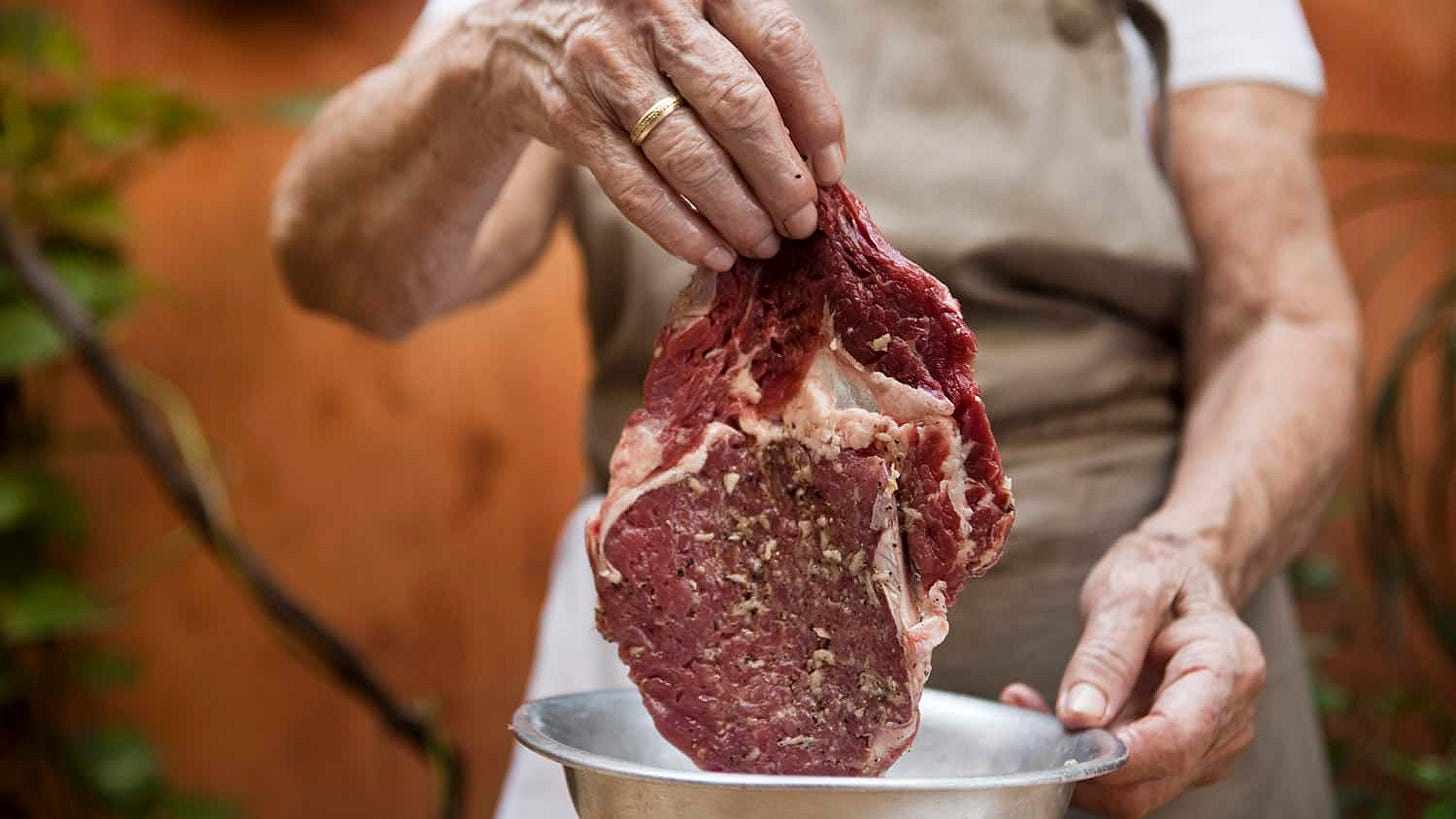The Claims of the Carnivore Community Come Up Short
(Research Brief)
In 2021, a study was published in Current Developments in Nutrition, providing a scientific analysis of the self-reported characteristics and health qualities of adults who follow a carnivore diet. For those unfamiliar, the carnivore diet is an animal-centric eating pattern that eschews plant intake, with the more extreme enthusiasts also excluding dairy products. This group has quite the cult of online personality, self-identifying as “carnivores”, and often making grandiose claims about their dietary way of life. According to carnivores, a meat-centric diet is a panacea for practically anything. Obesity? Eat meat. Diabetes? That needs meat. Cancer? More meat. Depression? Lots of meat. Gunshot wound to the head?… I bet the answer would somehow involve meat.
The problem with these claims is how the evidence they offer rarely rises beyond the level of personal anecdote, and frankly, some of it is questionable. Peer-reviewed studies on the carnivore diet are extremely rare, and long-term data is practically non-existent. However, this team of researchers set some reasonable aims attempting to capture a baseline picture of who is following this dietary pattern, and what exactly it supposedly does for them:
So sharpen those steak knives, toss in a little salt, because we’re at a perfect medium rare and ready to devour this piece.



